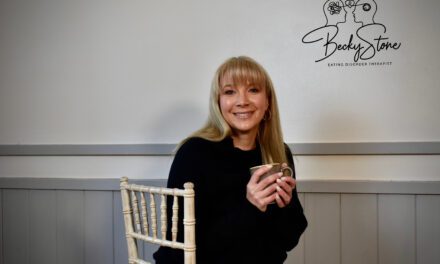Discover Your Path to Healing
How the Wrong Personal Trainer Can Trigger an Eating Disorder
Embark on a journey to redefine your connection with food and movement. Embrace a compassionate approach that prioritises your mental and physical well-being.
Opening the Conversation
The Internal Shift: From Control to Understanding
You won’t hear this on Instagram, but you need to.
Rebuilding After an Eating Disorder Triggered by a Personal Trainer
Not all personal trainers are qualified to work with people who are vulnerable to eating disorders. And I say this with care because some of the best cheerleaders in my life are personal trainers. But a growing number of people are unknowingly being harmed by quick-fix fitness culture, and I’ve seen the damage it can do firsthand in my therapy room.
This blog is for anyone who’s ever left a PT session feeling ashamed, starved, or constantly failing someone else’s rules.
Empowerment Through Recovery
A Realisation
Identifying Unqualified Trainers
Warning Signs in Personal Training
➔ A client once came to me sobbing because she “failed” to stick to her 1,200-calorie plan while also training five days a week.
She was exhausted.
Not just physically but mentally and emotionally.
She was eating into muscle, losing strength, and falling into the deepest relapse she’d had in years.
It took over a year of recovery to rebuild not just her body but her sense of trust in herself. Her body had become someone else’s project, and when that contract ended, she was left holding the shame.
The Red Flags of Unqualified PTs
Life After the 'After' Picture
What’s the Situation?
A client wants to feel better, stronger, and healthier, so they seek help from someone who promises transformation and looks the part.
What’s the Limiting Belief?
“I can’t trust myself with food. I need someone else to tell me what to do.”
What’s the Emotional Truth?
People aren’t just hiring a coach. They’re handing over their autonomy, inner voice, cues of hunger and rest, and often, mental health.
What’s the Internal Shift?
The body isn’t a machine to be controlled. It’s a story to be understood. And sometimes, healing begins when we unlearn the rules we’ve been taught, especially those wrapped in six-pack promises. What’s the Growth or Outcome?
Recovery isn’t about obedience to macros or burning off guilt. It’s about food, freedom, strength, community, and respect. The fundamental transformation comes from empowerment, not domination.
Not all PTs are bad. But if you’re working with one who:
-
Strips your calories to 1,200 with no regard for your energy expenditure
-
Encourages daily weigh-ins or mirror check-ins
-
Pushes shame-based motivation (“why haven’t you done this yet?”)
-
Is not qualified in nutrition but still dishes out meal plans
-
Promotes rapid results with no aftercare or exit plan
-
Uses your “before and after” photos as part of their brand story, without talking about your actual wellbeing
…then it’s not personal training. It’s performance control.
Here’s the question no one asks:
Who pays for your recovery when the plan ends?
Because what often gets left behind is:
-
Fear of food
-
A rigid relationship with exercise
-
Compulsive overthinking and guilt around meals
-
Body checking, mirror anxiety, and disconnection from hunger cues
-
A fragile identity based on someone else’s system
And worst of all? You believe you failed.
But you didn’t.
The system failed you.
The CrossFit Revolution
Transforming Movement with CrossFit
The CrossFit Alternative: What Empowerment Looks Like
Guidelines for Selecting a Trainer Who Values Your Wellbeing
Let me say this clearly: I do CrossFit.
And it saved my relationship with movement.
CrossFit isn’t about getting skinny. It’s about getting strong.
It’s not about pouting at your reflection, it’s about cheering on your teammates.
It values function over form. Food is fuel. Rest is respected. Lifting is celebrated.
And every time I see a new person walk into that space with fear and leave with fire in their belly… I know the difference the right kind of coach can make.
The CrossFit Alternative: What Empowerment Looks Like
If you’re thinking of hiring a PT, ask yourself:
➔ Do they ask about your mental health and relationship with food?
➔ Do they promote slow, steady progress instead of extreme transformations?
➔ Do they support body diversity and self-trust?
➔ Are they open to collaboration with a therapist or dietitian?
➔ Are they licensed or qualified in nutrition?
And most importantly:
Do you feel like a whole person in their care, or just another project for their portfolio?
Embracing Freedom in Fitness
Final Thoughts on Recovery and Autonomy
If you’ve been burned by a trainer in the past, I see you.
I’ve walked with many clients through the painful aftermath.
Together, we’ve rebuilt their relationship with food.
We’ve untangled shame from movement.
And we’ve reclaimed autonomy, one bite and breath at a time.
Fitness should never be about punishment.
It should be about freedom, fuel, and feeling strong in your own skin.
Becky Stone
Hi, I’m Becky Stone, a trauma-informed therapist specialising in eating disorders, neurodivergence, and body image recovery. I work with adults and teens across Canterbury and online, helping people reconnect with food, find joy in movement, and build a life free from food rules and shame. If you’ve been affected by unrealistic fitness standards or want to repair your relationship with food and exercise, you’re not alone. You’re welcome here.







